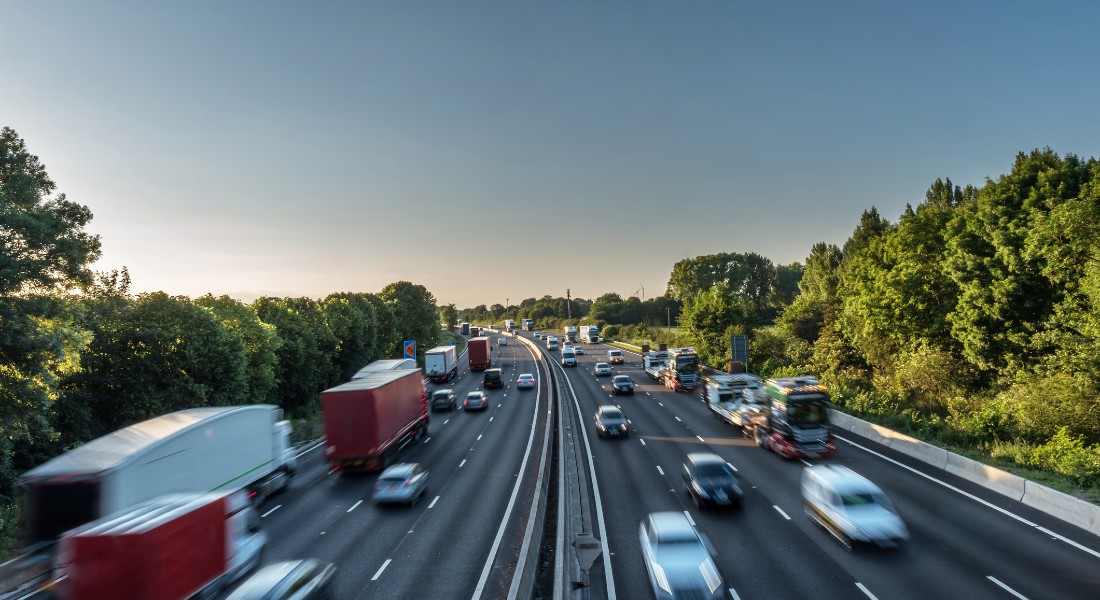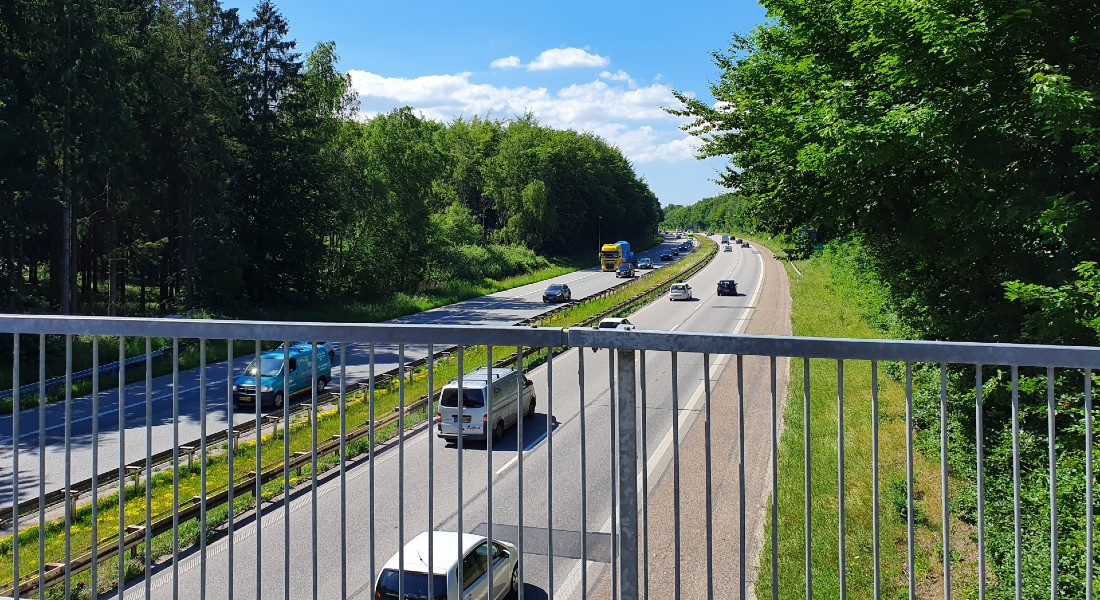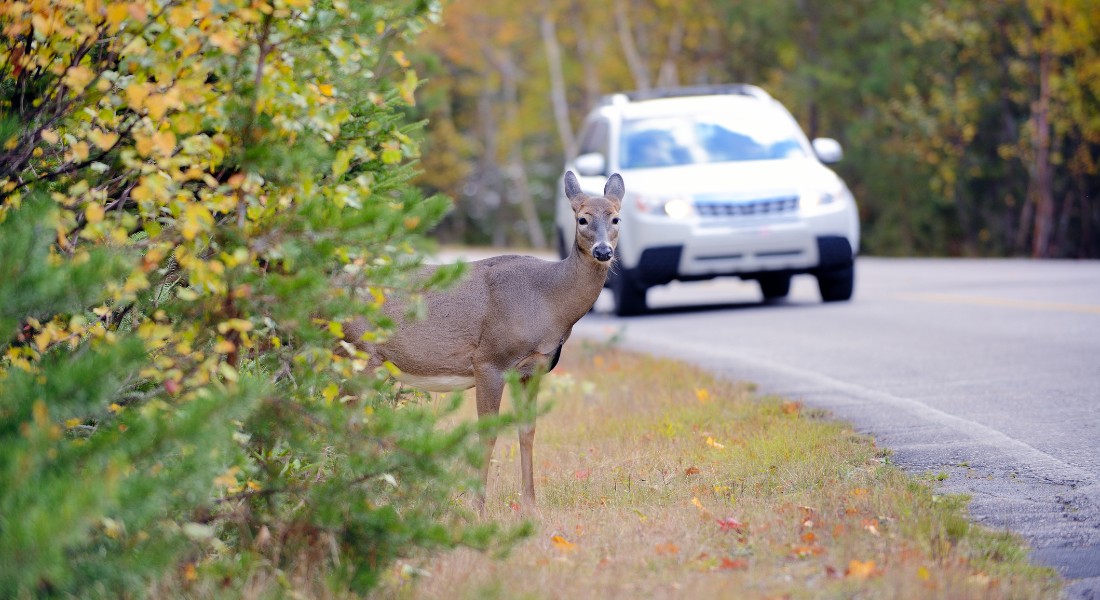This is how much Danes are willing to pay to protect nature and prevent noise from motorways
Danes are quite willing to pay to prevent noise pollution, protect unique natural areas and avoid animal collisions when it comes to the construction of new motorways. This is the conclusion of a new report by researchers from the University of Copenhagen in collaboration with the Danish Road Directorate.

New motorways can lessen travel times and improve workplace mobility, both of which can benefit the economy. But roads can also present a range of negative consequences for other humans and nature.
For example, deer, dogs, cats, badgers, foxes and other furry creatures can be struck by vehicles if they wander across highways. Furthermore, noise from a new highway may bother people who enjoy walks or other outdoor activities in nature. And in the worst case, noise pollution can even increase stress levels.
Taking these factors into account when paving new roads is important — as the government is planning to do as part of its new infrastructure initiative. Among other projects, the initiative consists of two new motorways in Jutland and Zealand. This is the message to decision makers in a new report prepared by University of Copenhagen researchers for the Danish Road Directorate.
The report shows that Danes care greatly about nature and are potentially willing to pay extra to avoid threats and nuisances to wildlife, the environment and humans when new motorways are built.
"Our results demonstrate that we are quite willing to pay to protect ourselves and our environment from nuisances attributable to motorways. Furthermore, we have calculated that it often pays off economically to build roads that bypass unique natural areas, erect fences that protect animals from being run down and implement noise protection measures," explains Jesper Sølver Schou, an Associate Professor and Head of Section at the Department of Food and Resource Economics at the University of Copenhagen.

This is a motorway in Denmark in the capital city, Copenhagen. By: Jesper Sølver Schou
Most willing to pay for noise abatement
The researchers analysed surveys from 14,209 randomly selected Danes. Some were asked to assess theoretical motorways in their local area and what they would be willing to pay to avoid any inconvenience. Others were asked to assess specific motorway initiatives, namely, a motorway in Jutland between Give, Viborg and Hobro, and another between Næstved and Rønnede, on Zealand.
"Our analysis demonstrates that Danes are particularly willing to pay to avoid noise pollution in natural areas. On average, they are willing to pay about DKK 1,900 (€250) per year, per household, to ensure that local natural areas used for recreational purposes aren’t exposed to loud noise from any new motorway," explains Jesper Sølver Schou.
In addition, Danes are willing to pay approximately DKK 860 (€115) per year, per household, to avoid the construction of new motorways that cut through unique natural areas and impact plant- and wildlife. When it comes to collisions with animals, we are willing to pay approximately DKK 800 (€105) per year, per household, for protective measures along roadways that can reduce the number of animals injured or killed in traffic, according to the report.
"This clearly shows that Danes care greatly about noise pollution, nature and animals. Indeed, when one is willing to forego a portion of their current consumption to accommodate for this set of considerations, it’s an expression that they stand by their prioroties. The study confirms several previous studies which reflect Danes’ serious concerns about nature conservation," says Jesper Sølver Schou.

Facts from the report
- More than 80 percent of the 14,209 participants in the study had previously considered that highway construction could compromise plant and wildlife, as well as possibilities for outdoor activities in natural areas. However, only 16-20 percent experienced such consequences personally.
- Roughly 50 percent of those surveyed for the report experience low levels of traffic noise, whereas 20 percent experience moderate or high noise impact from roads when engaging in outdoor activities in nature. Twenty-five percent do not experience any traffic noise.
Source: Report: Valuing the impacts on nature and outdoor activities in the construction of motorways through natural areas
Taking nature into account pays off
Beyond the fact that Danes value noise reduction and taking good care of nature, one example from the report indicates that doing so pays off in socio-economic terms as well.
Here, in a theoretical example for a sparsely populated area, the researchers calculate that a new stretch of motorway, of which 2.5 kilometres passes through a natural area and where nothing is done to reduce noise, safeguard biodiversity and avoid wildlife collisions, there would be a socio-economic loss equivalent to approximately DKK 14 million (€1.9m) per year for the local population.
This is because noise and the loss of nature and animal life adversely affect human welfare, which represents a socio-economic cost.
"In this case, it would be socio-economically justifiable to spend up to DKK 14 million (€1.9m) annually on the motorway to avoid any negative consequences. Thus, there is a solid basis for why a decision maker ought to carefully consider how to protect nature before paving any new roads," says Jesper Sølver Schou.
At the same time, Schou stresses that he will not address the two specific motorways. He does however, hope that the new data will be incorporated into the guidelines used to produce socio-economic analyses of major infrastructure projects. This will allow policymakers to make use of the report’s key findings when it comes to the development of preexisting and new road projects.
Contact
Jesper Sølver Schou, Associate Professor
Department of Food and Resource Economics
University of Copenhagen
jss@ifro.ku.dk, +45 25 14 66 76
Ida Eriksen
Journalist
Faculty of Science
University of Copenhagen
ier@science.ku.dk
+45 93516002
